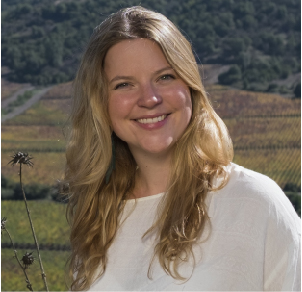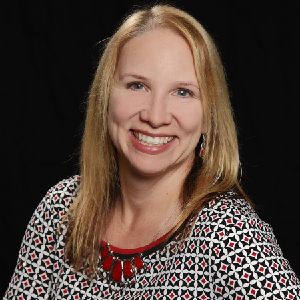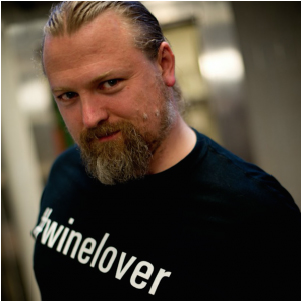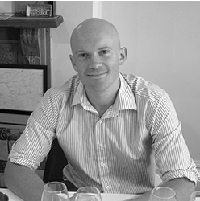By Paula Silva
One of the main purposes of Science & Wine blog is to make wine science information more accessible. As a researcher, I believe that wine sector development must be based in scientific knowledge. The future of wine sector must be prepared by anticipating the upcoming problems and build a solution strategy based in scientific guidelines. Why a blog? Because, for readers, blogs are an easy way to access a large amount of cutting-edge information with some expert analysis on emerging and controversial issues. This adventure forced me to explore the core of wine blogosphere. I was surprised by the numerous wine blogs that exist. In Vinography blog we can find a list, maybe incomplete, of 983 wine blogs. The list comprises blogs with different purposes: “wines review”, “wine and food”, “wine education”, “winemaking and viticulture”, “specific region”, “wine and culture”, “winery blog”, “wine business” and “other”. Among bloggers we found journalists, wineries, marketers and retailers, wine writers, wine businesses, consumers that built a website to share their passion for wine, provide wine news, review wines and provide ratings, promote and sell wine and wine related products and finally to share their wine-travel experiences. The 40 wine blogs that, according with Julien Miquel, are the ones that must be followed in 2018, mainly contain wine reviews and informational or opinion pieces about wine. This blog approach allows or encourages various types of activities, such as commercial, social, or a combination of the two. Therefore, the behavior and activity of wine bloggers can directly or indirectly affect the thoughts, feeling, and actions of others in population.
Amanda Barnes | Leeann Froese | Magnus Reuterdahl
Since there are no official guidelines or rules regarding what can be published, I decided to explore the importance of scientific knowledge in the professional life of a blogger. I want to thank to Amanda Barnes, Andrew Graham, Bjarne Mouridsen, Hugo Sousa Machado, Leeann Froese and Magnus Reuterdahl for accepting to answer my questions. For all of them, scientific research is very important in their blogger professional life. As journalists, Bjarne Mouridsen and Amanda Barnes, agree that searching for scientific information it is part of the job. Only scientific results allow them to achieve the confidence of their readers. For Hugo Machado this scientific validation is like a “warranty” of the post. Bjarne Mouridsen knows that it is important just not writing about wine but trying to get beyond it, and write about what happens in vineyard, in cellar and in a taste chamber. Therefore, topics like terroir, grape varieties, vinification, oxidation, technology and chemistry are very important for him. This view is shared for all. Hugo Machado would also show interest to know how scientific knowledge is directly reflected in the producer’s activity. Wine science also comprise market studies, a research area where investigation is also fundamental. Andrew Graham write for a trade-focused magazine (National Liquor News) and to write about consumer trends and buying habits needs to scan economic data like buying preferences. For Magnus Reuterdahl scientific research is a process to understand different choices of the wine grower and/or maker. Magnus also highlighted the importance of scientific research to recognize the important place of the wine in local and regional cultures. For someone who has worked in wine for more than 20 years, Leeann Froese think it is important to know what the latest developments to know what can be done to help to make the best possible and reliable quality wine. In summary, scientific research is used for bloggers to gain knowledge, credibility, confidence and to be always update.
Regarding information sources, all the bloggers seem to look for it in the same places: scientific papers, books, online databases and articles in specialized magazines. All of them also use the interview as a tool to get information. Andrew Graham look for scientific information to write his posts in scientific papers published in journals that are in online database that he can access through university library (Uni of Melbourne). He also like have some contacts that have data about wine consume. If possible, Bjarne Mouridsen search for information in wine magazines (if they have articles about it) and in books. Right now, he is reading David Birds book “Understanding Wine Technology”. Bjarne also like to obtain information directly from researchers, at moment, he is doing interviews to people involved in PORVID (Associação Portuguesa para a Diversidade da Videira). Depending on the nature of the information, Leeann Froese looks to university-published papers or to those organizations and generic boards that would fund studies or publish study results. She also read trade-related magazines and try to find scientific information there. Magnus Reuterdahl look up in books written by scientists and professionals, different on-line sources, wine makers and oenologists – most often in combination. Amanda Barnes look for information accordingly with the story that she is writing. For example, she wrote pieces on research done at UC Davis and so for that she looked at the specific research and thesis. She also wrote about climate change in South America, and at that time she interviewed several scientists, climatologists and winemakers. Hugo Machado get data in sites and blogs, where reports and articles are published, specialized magazines, books and conference records.
If all agree that is important to obtain feedback from researchers to obtain reliable information for their posts, regarding the input that bloggers can give to science, they have different opinions. Andrew Graham has not doubts that bloggers could help researchers. However, he is worried with the decrease of, at least in Australia, the number of wine bloggers that are at moment in activity. Bjarne Mouridsen thinks wine bloggers can help when it comes to asking questions, that researchers can use in their work. For Leeann Froese, bloggers can help scientists that are looking to poll or gather data from a wide audience, on the data collection phase, by spreading the word. Once study results are available, wine bloggers can use the same access to a large audience to share results. Bloggers can potentially help to distill scientific information that is very technical, and full of jargon not known by the public and explain it in easy-to-understand terminology. Magnus Reuterdahl mentioned that there are a lot of bloggers with very specialized knowledge that can give background info as well as in depth knowledge. As with all sources they must be judged on a personal basis, i.e. some are great some are bull. He is sure that many bloggers have a genuine drive to share their passion and makes them relevant to their readers and for researchers and professionals. Amanda Barnes and Hugo Machado were the ones with more doubts regarding this issue, however, they think that working together in an open network is beneficial for all.
Andrew Graham | Bjarne Mouridsen | Hugo S. Machado
In conclusion, the growth of wine blogs and other social networks (e.g., Twitter, YouTube, and Facebook), on the Internet has been phenomenal. Wine is a popular issue, so wine blogs can attract tremendous attention and exert great influence on society. The importance that blogs have in wine sector makes them a universal gateway and an easily accessible channel of information retrieval and communication on scientific topics. Indeed, blogs can synthesize and facilitate access to research findings in various field, providing a broad vision of wine science. This increase the bloggers responsibility about the veracity of their contents, since this channel of communication do not present the same level of selection, quality control, or improvement process demanded by peer-review journals. With content quality assured, blogs represent user-friendly, interactive, and efficient tools for the development of online research communities, and they are a powerful means of sharing scientific information, analysis.







